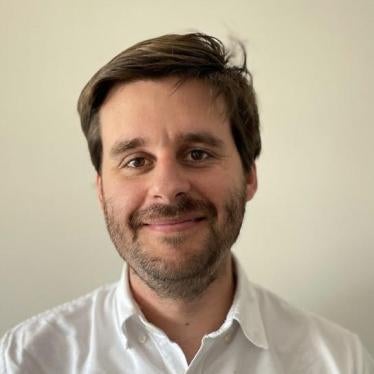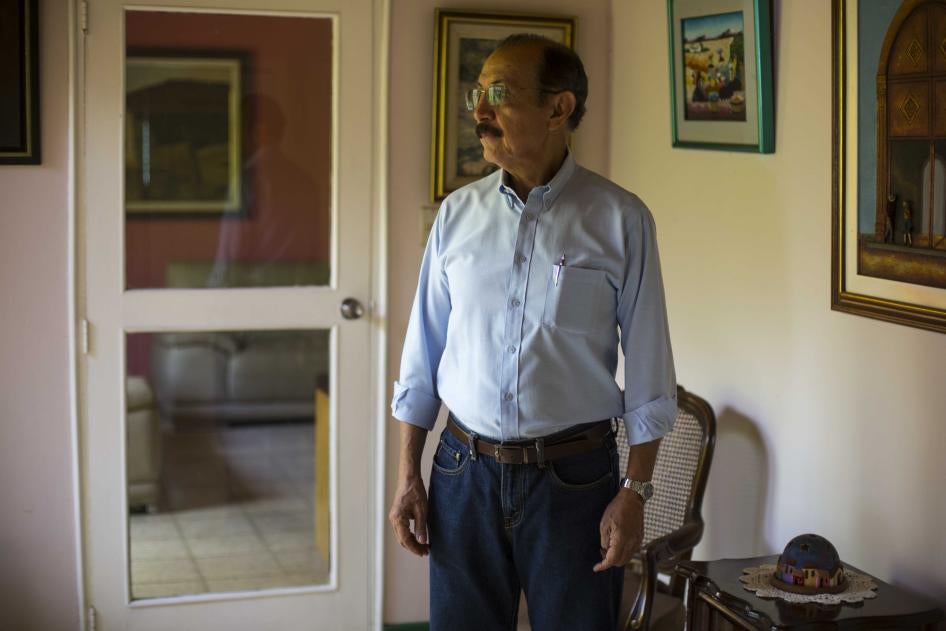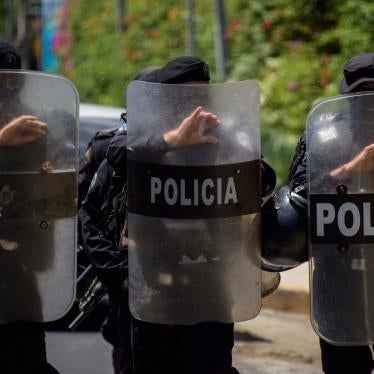On February 12, Hugo Torres, a 73-year-old former guerrilla fighter and a critic of President Daniel Ortega, died in detention in Nicaragua. Torres was reportedly being held in inhumane conditions, incommunicado for prolonged periods, repeatedly interrogated, and not allowed to access the open air. He is the first government critic arrested in Nicaragua in 2021 to die in prison, but certainly not the only one facing worrying health conditions.
170 people perceived as government critics remain behind bars in Nicaragua, according to local human rights groups. They include over 40 critics and other opposition leaders who were arrested in the context of the November 2021 presidential elections to pave the way for Daniel Ortega’s fifth term. Some have been held in prolonged solitary confinement, which amounts to torture, as well as incommunicado detention for weeks or months and are not getting adequate food.
In February, after Torres died, the Nicaraguan Attorney General’s Office announced it was sending some prisoners to house arrest, citing “humanitarian reasons” and undefined “health conditions.” But several critics with serious medical conditions remain behind bars. Most are being prosecuted for “conspiracy to undermine national integrity,” an overly broad offense that has often been used to criminalize freedom of expression.
We spoke to sources who described a lack of adequate or timely medical care and harsh conditions in detention that aggravated underlying health conditions for multiple detainees. The accounts in this piece are based on these interviews and, whenever possible, corroborating evidence such as medical documents and legal files.
Juan Lorenzo Holmann, the 56-year-old manager of the independent newspaper La Prensa, suffers from a serious heart condition. Months before he was arrested in August 2021, he went through surgery. He was not able to have a follow-up exam because he was detained. The guards in El Chipote prison reportedly gave him the medication he needed, but without any labels to identify the pills. In September, he fainted in the prison’s courtyard, which he is allowed to visit only sporadically. He was being held in a small cell that had lights on 24 hours a day.
Nidia Barbosa, a 66-year-old member of the opposition group Civic Alliance for Justice and Democracy, also has a heart condition. She was arrested in November 2021 in the city of Masaya. Between November and December, she was transferred three times to a hospital due to low blood pressure, seemingly resulting from her condition. In one instance, the doctor who examined her reportedly said that “if she had been taken to the hospital five minutes later, she would have died.” At the time, she was being held in a police station, interrogated repeatedly, and not allowed access to open air.
Eliseo Castro, a 59-year-old activist, has been detained since September 2019. He suffers from chronic hypertension and has suffered extreme headaches in detention. Castro was provided with painkillers in prison but was not examined by a specialist. In September 2021, after repeatedly requesting specialized care for his headaches, he had a stroke and was taken to a hospital. He has been unable to talk or walk since.
Roger Reyes, a 37-year-old lawyer, has been held at El Chipote since August 2021. Reyes has progressively lost his memory since he was arrested. A few months after his arrest, Reyes said he did not remember one of his two daughters. He appears to be depressed and had stopped talking with other prisoners. Despite his lawyer’s request to allow him psychological care, Reyes has not been able to see a therapist. He has been held in a very small cell with no windows, and has been subjected to daily interrogations, sometimes in the middle of the night.
Nicaraguan authorities have a duty under international human rights law to provide prisoners with appropriate medical care and regular monitoring of their health. This includes access to medication for chronic illnesses such as heart disease and hypertension, which disproportionately affect older people.
Only strong and sustained international pressure will prompt the Ortega government to act. Members of the United Nations Human Rights Council, who are meeting in Geneva this month, should help these government critics behind bars.
At the beginning of the sessions, on March 7, the UN high commissioner for human rights, Michelle Bachelet, identified a “pattern of serious violations of civil and political rights” in Nicaragua that arbitrarily suppressed dissenting opinions during the November 2021 electoral process. She said that the council should take “further measures to strengthen accountability.”
The council should establish an international investigative body to gather and preserve evidence of human rights abuses in Nicaragua, including torture and ill-treatment of detainees. Nicaraguan courts lack independence and without international action there is little to no possibility of justice for these and other victims in the country.
The council should also press the Nicaraguan government to release anyone who has been arbitrarily detained, beginning with those with serious health problems. None of them should have been in prison in the first place. For some, the hazardous prison conditions could become a death sentence.
The council needs to act to prevent anyone else from dying in prison like Hugo Torres.









